 The age of digital technology, in which we can search and retrieve more information than we could in any previous era, has triggered a debate over whether we have too much information. Is the cure to “unpublish” things we think are wrong or out of date? Ought we have a “right to be forgotten”?
The age of digital technology, in which we can search and retrieve more information than we could in any previous era, has triggered a debate over whether we have too much information. Is the cure to “unpublish” things we think are wrong or out of date? Ought we have a “right to be forgotten”?
 The word “scapegoat” is being used a lot in discussions about politics in 2016. The new US president-elect, Donald Trump, appealed to some voters with rhetoric that appeared to scapegoat Mexicans and Muslims for various social and economic problems.
The word “scapegoat” is being used a lot in discussions about politics in 2016. The new US president-elect, Donald Trump, appealed to some voters with rhetoric that appeared to scapegoat Mexicans and Muslims for various social and economic problems.
- By Peter Barnes
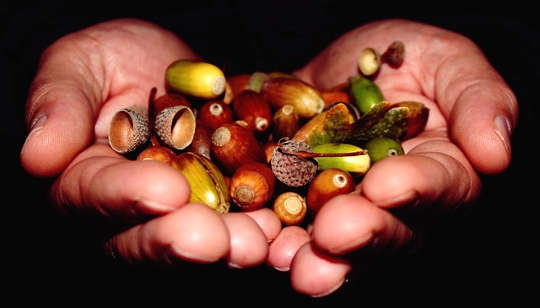 The big, rarely asked question about our current economy is who gets the benefits of common wealth? Common wealth has several components. One consists of gifts of nature we inherit together: our atmosphere and oceans, watersheds and wetlands, forests and fertile plains, and so on (including, of course, fossil fuels).
The big, rarely asked question about our current economy is who gets the benefits of common wealth? Common wealth has several components. One consists of gifts of nature we inherit together: our atmosphere and oceans, watersheds and wetlands, forests and fertile plains, and so on (including, of course, fossil fuels).
 Kryptowire, a security firm, recently identified several models of Android mobile devices that have preinstalled permanent software, known as firmware, that serve as backdoor that collects sensitive personal data, including text messages, geolocations, contact lists, call logs and transmits them to a third-party server in Shanghai, China.
Kryptowire, a security firm, recently identified several models of Android mobile devices that have preinstalled permanent software, known as firmware, that serve as backdoor that collects sensitive personal data, including text messages, geolocations, contact lists, call logs and transmits them to a third-party server in Shanghai, China.
 In an interview with CBS’s 60 Minutes, United States president-elect Donald Trump highlighted some campaign promises that he actually plans to keep.
In an interview with CBS’s 60 Minutes, United States president-elect Donald Trump highlighted some campaign promises that he actually plans to keep.
 About 1.5 million people have been shot by a gun, 468,758 fatally, in the United States over the past 15 years. The majority, nearly two-thirds of gun deaths, are suicides; more than a third are gunshots due to assault.
About 1.5 million people have been shot by a gun, 468,758 fatally, in the United States over the past 15 years. The majority, nearly two-thirds of gun deaths, are suicides; more than a third are gunshots due to assault.
 New research shows that racial biases affect more than how we treat individual black people. Biases also lead us to devalue black homes and neighborhoods, and to subject them to potential health hazards.
New research shows that racial biases affect more than how we treat individual black people. Biases also lead us to devalue black homes and neighborhoods, and to subject them to potential health hazards.
 This year’s election season was historic in more ways than one. An unprecedented nine states considered liberalizing cannabis laws, and here’s how it broke down: California, Massachusetts and Nevada saw their ballot measures pass.
This year’s election season was historic in more ways than one. An unprecedented nine states considered liberalizing cannabis laws, and here’s how it broke down: California, Massachusetts and Nevada saw their ballot measures pass.
 There has been significant suspicion in Australia and elsewhere on the wealth of particular business people, investors and companies from China. There’s always the suggestion that there is something unacceptable about it...
There has been significant suspicion in Australia and elsewhere on the wealth of particular business people, investors and companies from China. There’s always the suggestion that there is something unacceptable about it...
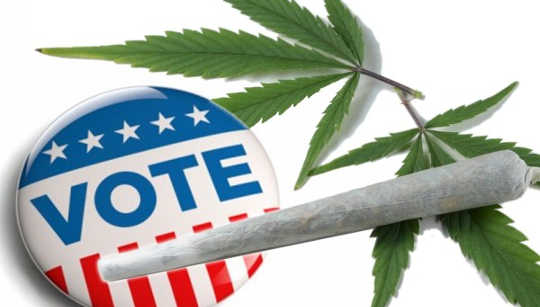 Congress continues to resist decriminalizing marijuana even as a popular crusade to legalize its use state by state may soon mean almost a quarter of Americans can smoke up at will, not including the many more who can use the drug medicinally.
Congress continues to resist decriminalizing marijuana even as a popular crusade to legalize its use state by state may soon mean almost a quarter of Americans can smoke up at will, not including the many more who can use the drug medicinally.
 FBI Director James Comey’s Oct. 28 bombshell letter to Congress – which has the potential to affect the presidential election – may be based on illegally obtained emails.
FBI Director James Comey’s Oct. 28 bombshell letter to Congress – which has the potential to affect the presidential election – may be based on illegally obtained emails.
 When it comes to theft online, “you’re only protected by other, easier victims,” says Hsinchun Chen, an expert in cybersecurity.
When it comes to theft online, “you’re only protected by other, easier victims,” says Hsinchun Chen, an expert in cybersecurity.
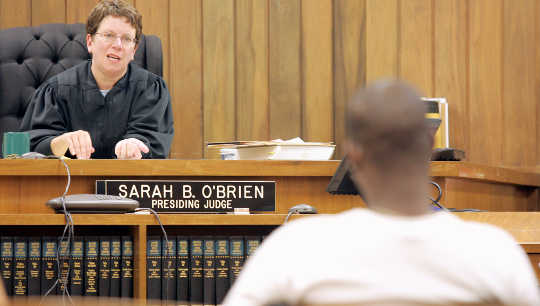 Many experts and politicians believe there is, as Hillary Clinton has said repeatedly, “systematic racism throughout the criminal justice system.”
Many experts and politicians believe there is, as Hillary Clinton has said repeatedly, “systematic racism throughout the criminal justice system.”
 Enabled by exponential technological advancements in data storage, transmission and analysis, the drive to “datify” our lives is creating an ultra-transparent world where we are never free from being under surveillance.
Enabled by exponential technological advancements in data storage, transmission and analysis, the drive to “datify” our lives is creating an ultra-transparent world where we are never free from being under surveillance.
 A new study highlights problems with how many law enforcement agencies handle officer-involved shootings.
A new study highlights problems with how many law enforcement agencies handle officer-involved shootings.
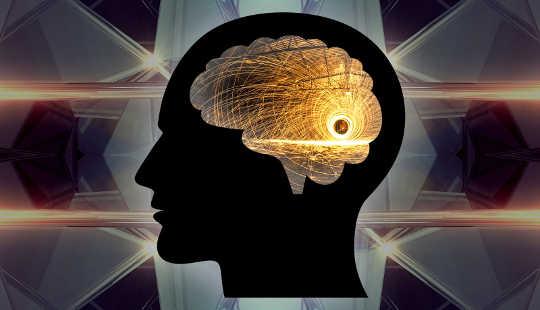 We live in an interconnected age where wirelessly controlled computing devices make almost every aspect of our lives easier, but they also make us vulnerable to cyber-security attacks. Today, nearly everything can be hacked, from cars to lightbulbs
We live in an interconnected age where wirelessly controlled computing devices make almost every aspect of our lives easier, but they also make us vulnerable to cyber-security attacks. Today, nearly everything can be hacked, from cars to lightbulbs
 When Yahoo! confirmed that it had experienced a massive online attack from hackers who stole personal information from more than 500 million people — including names, emails and phone numbers — it revealed a disturbing truth about our digital media system.
When Yahoo! confirmed that it had experienced a massive online attack from hackers who stole personal information from more than 500 million people — including names, emails and phone numbers — it revealed a disturbing truth about our digital media system.
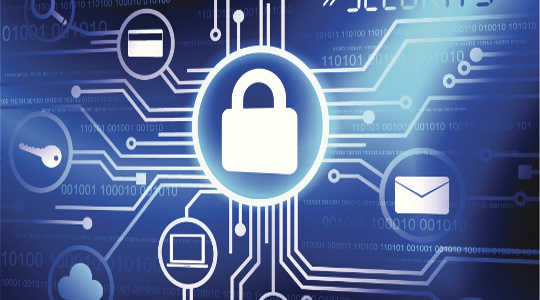 Imagine, if you can, a period long before today’s internet-based connectivity. Imagine that, in that distant time, the populations of every country were offered a new plan.
Imagine, if you can, a period long before today’s internet-based connectivity. Imagine that, in that distant time, the populations of every country were offered a new plan.
 Drone footage is everywhere, whether used to film extreme sports, outdoor events, nature, music festivals, or just for its own sake.
Drone footage is everywhere, whether used to film extreme sports, outdoor events, nature, music festivals, or just for its own sake.
 Fear of hackers reading private emails in cloud-based systems like Microsoft Outlook, Gmail or Yahoo has recently sent regular people and public officials scrambling to delete entire accounts full of messages dating back years.
Fear of hackers reading private emails in cloud-based systems like Microsoft Outlook, Gmail or Yahoo has recently sent regular people and public officials scrambling to delete entire accounts full of messages dating back years.
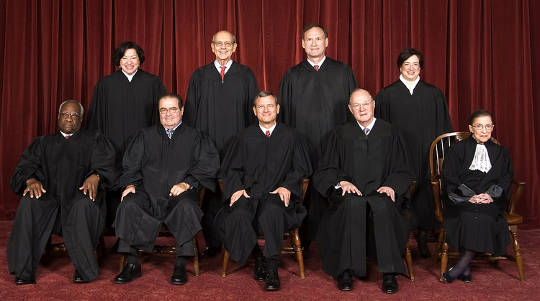 At a recent rally of Donald Trump supporters in North Carolina, Republican vice-presidential candidate Mike Pence said the result of the November presidential election would determine the shape of the US Supreme Court for the next 40 years.
At a recent rally of Donald Trump supporters in North Carolina, Republican vice-presidential candidate Mike Pence said the result of the November presidential election would determine the shape of the US Supreme Court for the next 40 years.
 President Obama has promised to support a bold future for medicine where diagnostic testing and treatments aren’t just what’s best for most people – they’re what’s best for you.
President Obama has promised to support a bold future for medicine where diagnostic testing and treatments aren’t just what’s best for most people – they’re what’s best for you.
 Researchers have applied magnetic nanotechnology, previously used as a cancer screen, to create what could be the first practical roadside test for marijuana intoxication.
Researchers have applied magnetic nanotechnology, previously used as a cancer screen, to create what could be the first practical roadside test for marijuana intoxication.














